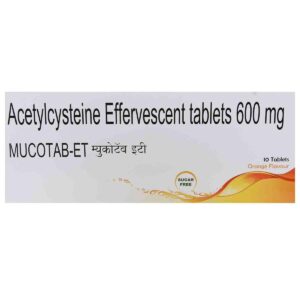N-ACETYLCYSTEINE
N-ACETYLCYSTEINE: N-Acetylcysteine (NAC) is a drug that is commonly used as a mucolytic agent to help loosen and thin mucus in the airways. It is also utilized as an antidote for acetaminophen overdose and is being studied for its potential benefits in a range of other conditions.
The precise mechanism of action of NAC is not fully understood. It is believed to work through various mechanisms including replenishing intracellular glutathione levels, which helps protect against oxidative stress. NAC also acts as a direct antioxidant and has anti-inflammatory properties.
In the treatment of acetaminophen overdose, NAC is used to prevent or reduce liver damage caused by the toxic metabolite of acetaminophen. It is most effective when administered within 8-10 hours after ingestion of acetaminophen.
The dose of NAC depends on the condition being treated. For mucolytic purposes, it is often given as an oral solution or tablet in doses ranging from 200-600 mg, usually taken 2-3 times a day. For acetaminophen overdose, the recommended regimen involves administration of a loading dose of 140 mg/kg, followed by a maintenance infusion over the course of 17 doses.
NAC is generally well-tolerated, and most side effects are mild and transient. Common side effects include nausea, vomiting, abdominal pain, and diarrhea. These can be reduced by taking NAC with food or by using extended-release formulations. Rarely, allergic reactions such as rash and severe bronchospasm can occur. It is important to note that NAC should not be used in patients with a known allergy to the drug.
In summary, N-Acetylcysteine is a drug used as a mucolytic agent and an antidote for acetaminophen overdose. It works through various mechanisms including replenishing glutathione levels and acting as an antioxidant. The dose and side effects vary depending on the condition being treated.

